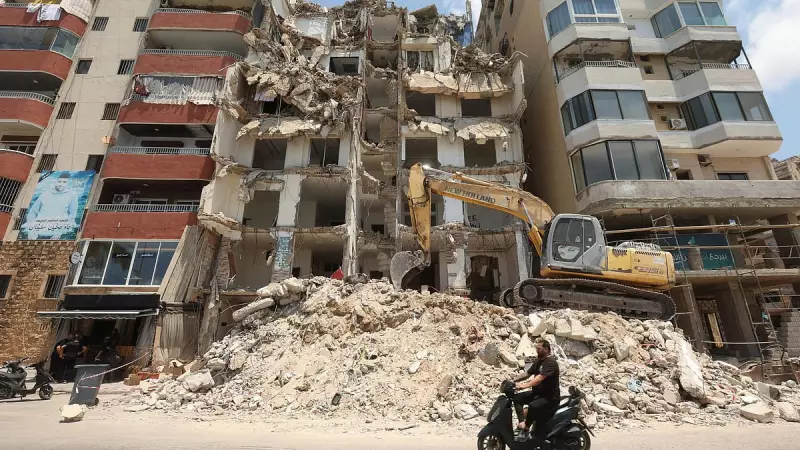
The Israeli military has made serious allegations against Hezbollah, accusing the Lebanese militant group of actively working to rebuild its military capabilities through weapons smuggling from Syria. This development comes amid escalating tensions along the Israel-Lebanon border that have raised concerns about regional stability.
Military Intelligence Reveals Smuggling Operations
According to detailed statements from Israeli defense officials, Hezbollah has been systematically attempting to transport weapons and military equipment across the Syrian border into Lebanon. The Israeli military specifically mentioned that Hezbollah is trying to "rebuild and smuggle in arms from Syria," indicating a coordinated effort to enhance the group's military posture despite ongoing regional pressures.
Military intelligence suggests that these smuggling operations involve sophisticated methods to evade detection, utilizing various border crossing points and potentially taking advantage of the complex security situation in Syria. The weapons being transported are believed to include advanced missile systems and other military hardware that could significantly boost Hezbollah's offensive capabilities.
Recent Border Attacks and Escalating Tensions
The allegations about weapons smuggling emerge against a backdrop of increased military activity along the Israel-Lebanon border. Israeli forces recently conducted strikes targeting what they described as Hezbollah military compounds in southern Lebanon. These operations were reportedly in response to earlier attacks launched from Lebanese territory.
Just days before the current revelations, Hezbollah claimed responsibility for multiple attacks on Israeli military positions, including the Mount Dov area along the disputed border region. The group stated these attacks were carried out using guided missiles and other weaponry, demonstrating their continued military capacity despite Israeli countermeasures.
The exchange of fire represents one of the most significant escalations in cross-border violence in recent months, with both sides appearing to test each other's defensive capabilities and response thresholds.
Regional Implications and Security Concerns
The situation has broader implications for Middle Eastern security dynamics, particularly given the ongoing conflict in Gaza and the complex web of regional alliances. Israeli officials have repeatedly expressed concerns about Hezbollah's growing arsenal, which now includes precision-guided missiles that could target critical infrastructure throughout Israel.
The alleged smuggling operations from Syria highlight the challenges facing international efforts to prevent weapons proliferation to non-state actors. Syria has long served as a conduit for Iranian weapons destined for Hezbollah, with the group maintaining significant influence in parts of the country through its support of the Assad regime.
Security analysts note that Hezbollah's ability to replenish its weapons stocks despite Israeli airstrikes on suspected convoys demonstrates the group's resilience and the difficulties in completely interdiction smuggling routes. The mountainous terrain along the Lebanon-Syria border provides numerous paths that are challenging to monitor effectively.
The current situation underscores the fragile nature of the ceasefire understanding along the Israel-Lebanon border and raises questions about how long the current tensions can be contained without escalating into broader conflict. Both sides appear to be preparing for various scenarios, with Israel particularly concerned about Hezbollah's precision missile project and its potential to change the strategic balance in any future confrontation.





